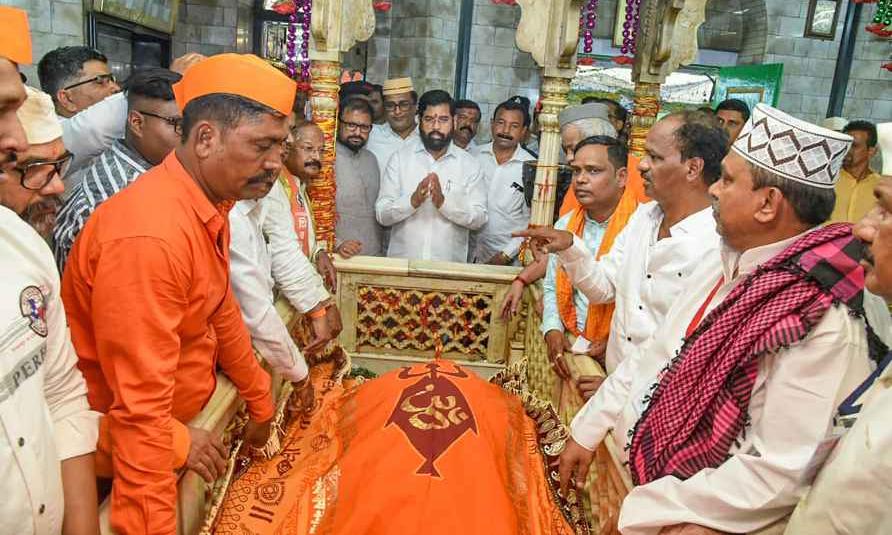
Haji Malang Dargah's Hindu trustee denies Shinde's temple claims, labels them political assertions
text_fieldsMaharashtra Chief Minister Eknath Shinde's recent assertion of commitment to the liberation of the Haji Malang Dargah has once again brought attention to the controversial claim by right-wing groups that it was once a temple.
The Haji Malang Dargah stands tall on the lowest plateau of Malanggad, a hill fort that rises 3,000 feet above sea level in Maharashtra’s Thane district. It has been a centre of controversy since Shiv Sena leader Anand Dighe led an agitation in the mid-1980s, claiming that the shrine belonged to Hindus as it was the site of a 700-year-old Machindranath temple, according to a report published in The Indian Express.
The controversy, however, seems to be a distant concern for the handful of devotees who recently ascended the two-hour winding trail to reach the final resting place of Haji Abd-ul-Rahman, a 12th-century Sufi saint also known as Haji Malang Baba. Unaware of the political storm brewing, they are preparing for the saint's death anniversary on February 20.
Chandrahas Ketkar, one of the trustees managing the dargah for 14 generations, dismisses the claims of it being a temple, asserting that it's a composite structure governed by its own special custom or general law of trusts. He points to a 1954 Supreme Court case, which affirmed the dargah's unique status, setting it apart from Hindu or Muslim law.
The shrine, a symbol of Maharashtra's syncretic culture, has a rich history documented in The Gazetteers of Bombay Presidency, published in 1882. It honours Haji Abd-ul-Rahman, who arrived from Yemen in the 12th century and settled on the hill's lower plateau during the reign of local king Nal Raja.
Local legends intertwine with mythology, claiming Nal Raja married his daughter to the Sufi saint, and both their graves lie within the dargah.
Conflicts over the dargah's control emerged in the 18th century, with local Muslims objecting to a Brahmin managing it. A resolution in 1817, involving "casting lots" to find the will of the saint, led to the hereditary trusteeship of the Ketkar family.
Over the years, the trust had members from various communities, fostering harmony. However, since 2008, there have been no new appointments, leaving the current three-member trust composed of Chandrahas Ketkar.
Despite communal tensions in the mid-1980s, when claims of an ancient Hindu shrine surfaced, the Shiv Sena-led government put the issue on hold until Chief Minister Shinde reignited it in 2023.





